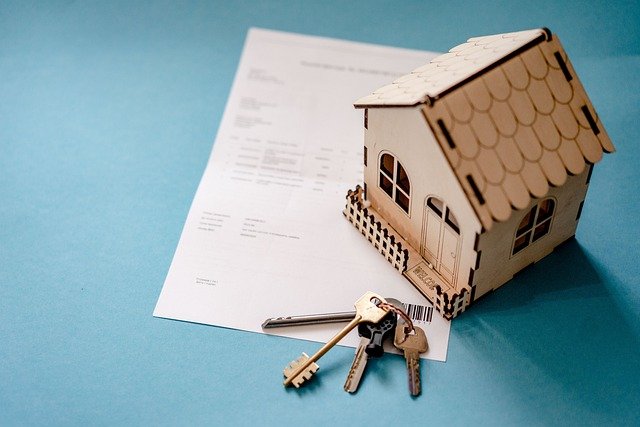A Comprehensive Guide to Lease Option Homes for Seniors
Lease option homes present an increasingly popular housing solution for seniors seeking flexible living arrangements without the immediate financial commitment of purchasing property. This arrangement allows seniors to lease a home with the option to buy it later, providing time to evaluate both the property and their long-term housing needs. Understanding how these agreements work, their benefits, and the application process can help seniors make informed decisions about their housing future while potentially securing favorable deals in today's real estate market.

What Are Lease Option Homes for Seniors and How Do They Work
Lease option homes operate through a contractual agreement that combines a traditional rental lease with a purchase option. Seniors enter into a lease agreement for a specified period, typically one to three years, while simultaneously securing the right to purchase the property at a predetermined price before the option expires. The arrangement usually involves paying an upfront option fee, which may range from 1% to 5% of the home’s value, and this fee often applies toward the down payment if the purchase option is exercised.
During the lease period, seniors pay monthly rent that may include a portion credited toward the eventual purchase price. This rent credit typically ranges from $100 to $500 monthly, depending on the agreement terms and local market conditions. The purchase price is usually set at the current market value or slightly above, providing protection against future price increases while giving seniors time to secure financing or decide if homeownership aligns with their goals.
Key Benefits of Lease Option Arrangements
The primary benefits of lease option homes include financial flexibility and reduced immediate risk. Seniors can test-drive a neighborhood and specific property before committing to ownership, ensuring the location meets their lifestyle needs and accessibility requirements. This trial period proves particularly valuable for seniors considering downsizing or relocating to unfamiliar areas.
Additionally, lease options provide time to improve credit scores or accumulate savings for a larger down payment. Seniors facing temporary financial constraints can use the lease period to stabilize their finances while building equity through rent credits. The predetermined purchase price also offers protection against market appreciation, potentially saving thousands of dollars if property values increase during the option period.
Understanding the Application Process
The application process for lease option homes typically involves several steps beyond standard rental applications. Seniors must demonstrate both their ability to pay monthly rent and their potential qualification for future home financing. Landlords or property owners usually require credit checks, income verification, and references, similar to traditional rental applications.
However, lease option applications also involve negotiating specific terms including the option fee amount, rent credit percentage, purchase price, and option period length. Seniors should prepare financial documentation showing stable income, existing assets, and debt obligations. Many property owners prefer applicants who demonstrate genuine interest in eventual purchase rather than using the lease option solely to delay buying decisions.
Strategies for Securing Good Deals
Securing favorable lease option deals requires research, negotiation skills, and market timing. Seniors should focus on properties that have been on the market for extended periods, as owners may be more willing to consider creative financing arrangements. Working with real estate agents familiar with lease options can provide access to properties not widely advertised through traditional channels.
Negotiating favorable terms involves balancing the option fee, rent credits, and purchase price. Higher rent credits reduce the effective monthly housing cost and build more equity toward purchase, while lower option fees reduce upfront expenses. Seniors should also negotiate for property maintenance responsibilities, ensuring major repairs remain the owner’s obligation during the lease period.
| Provider Type | Services Offered | Key Features |
|---|---|---|
| Real Estate Investment Companies | Lease option homes, property management | Flexible terms, credit building opportunities |
| Individual Property Owners | Direct lease option agreements | Personalized negotiations, often better terms |
| Senior Living Specialists | Age-appropriate lease options | Accessibility modifications, senior-focused communities |
Prices, rates, or cost estimates mentioned in this article are based on the latest available information but may change over time. Independent research is advised before making financial decisions.
Important Considerations and Potential Drawbacks
While lease option homes offer numerous advantages, seniors should understand potential drawbacks and legal implications. If the purchase option isn’t exercised, the option fee is typically forfeited, representing a complete loss of that investment. Additionally, seniors remain responsible for rent payments even if property values decline, potentially leaving them paying above-market rates for a property worth less than the agreed purchase price.
Legal complexities also require careful attention, as lease option agreements involve both landlord-tenant law and real estate purchase contracts. Seniors should consider consulting with real estate attorneys to review agreements before signing, ensuring their rights are protected and terms are clearly understood. Property maintenance responsibilities, insurance requirements, and early termination clauses should be explicitly addressed in the contract.
Lease option homes can provide seniors with valuable flexibility and pathways to homeownership while offering protection against market volatility. Success with these arrangements depends on thorough research, careful negotiation, and realistic assessment of long-term housing goals. Seniors considering this option should evaluate their financial stability, future housing needs, and local market conditions to determine if lease options align with their retirement planning objectives.




